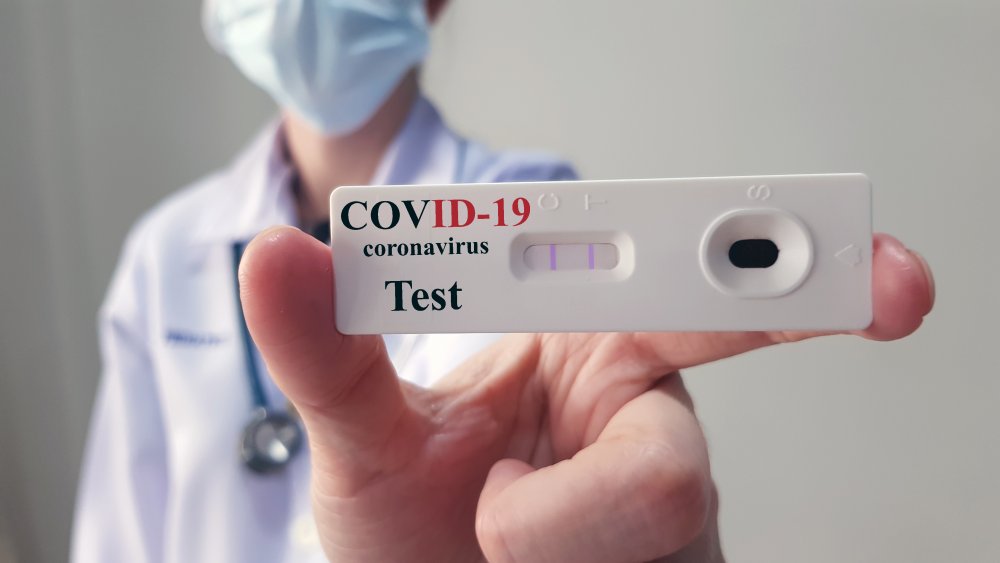The COVID-19 Complication That Adults Shouldn't Ignore
It's been eight months since life changed into a socially-distanced, mask-wearing reality. Yet even now, scientists are still learning new things about the coronavirus and how it impacts the human body.
A new complication showing up in adults has doctors concerned. It's previously been seen in children, but it's now something that all patients should watch out for. The condition is called MIS-A, for multisystem inflammatory syndrome in adults, according to NBC. You may already have heard of MIS-C, which is what it's called when it presents in children.
Patients with MIS-A typically don't show up at the hospital with COVID-19 symptoms, like shortness of breath. Rather, they present with symptoms like chest pain, palpitations, gastrointestinal problems, fever, and/or a rash. Tests for COVID-19 are usually negative because they don't have an active infection. Instead, they may have COVID-19 antibodies, which show that they had the illness between two and six weeks earlier, which may or may not have caused symptoms.
What is the prognosis for MIS-A?
MIS-A is a serious condition that usually requires intensive care treatment. It causes inflammation in the body and problems with organs like the heart, kidneys, and liver, according to CNN. It typically does not affect the lungs.
In children, the prognosis for MIS-C is generally good if it is caught and treated early. In adults, only 27 cases of MIS-A have been reported, according to the CDC, so more research is needed to project survival rates. Ten of the patients tracked needed intensive care, three died from the condition.
Dr. Sapna Bamrah Morris, who heads the CDC's Health Care Systems and Worker Safety Task Force, told NBC that physicians need to be educated on and watching out for MIS-A. The condition's "true prevalence is unknown," Dr. Morris said. "We have to get physicians realizing that. It may be rare, but we don't know. It might be more common than we think."
So far, MIS-A is primarily impacting people of racial or ethnic minority groups. Of the cases reported on by the CDC, all but one were of minority descent. The organization notes that overall, health and social disparities in minority communities have caused increased rates of COVID-19.
The bottom line is, if you experience any strange symptoms like fever, chest pain or discomfort, stomach troubles, or a rash, contact your doctor immediately. These are not times to take risks with your health.


